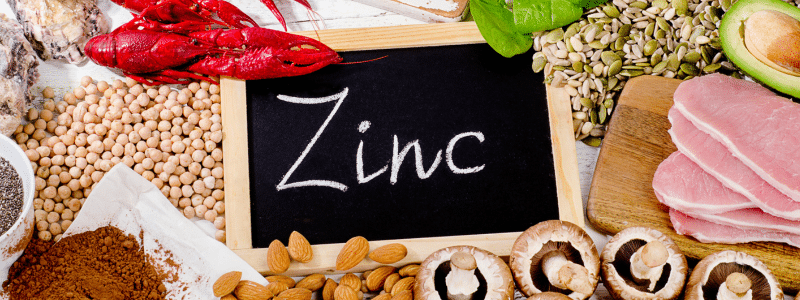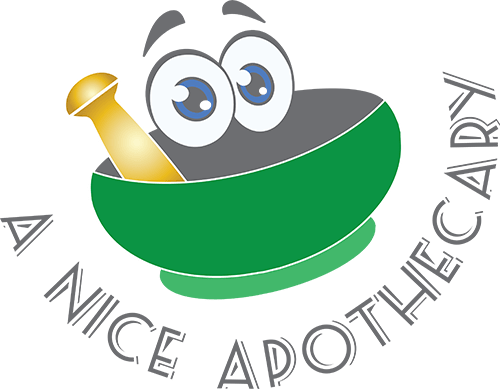
Studies show that there’s a correlation between zinc deficiency and susceptibility to pathogens; therefore, zinc plays a pivotal role in a strong, healthy immune system.
Does Zinc Improve Your Immune System?
In order to avoid deficiency and a weakened immune system due to a low-zinc diet, regularly taking zinc supplements will go a long way in helping you cover your nutritional bases and fortifying your overall health.
What Does A Lack Of Zinc Cause?
A lack of zinc increases your risk of contracting sickness and disease. Zinc is necessary for developing and regulating cells involved in immunity; therefore, a lack of zinc will diminish the function and effectiveness of your immune system.
What Are the Symptoms Of Zinc Deficiency?
Zinc deficiency can present many different symptoms, including:
- Skin changes similar to eczema (cracks and smooth or glassy skin)
- Loss of hair
- Increase in infections
- Prolonged healing time for wounds
- Impaired taste and smell
- Delayed puberty in children
How Much Zinc For Immune Support?
Here’s a general guide for optimal zinc intake according to the National Institutes of Health:
| Age Range | Amount of Zinc |
| 0-6 months | 2 mg/day |
| 7-12 months | 3.0 mg/day |
| 1-3 years | 3.0 mg/day |
| 4-8 years | 5.0 mg/day |
| 9-13 years | 8 mg/day (Boys), 8 mg/day (Girls) |
| 14-18 years | 11 mg/day (Boys), 9 mg/day (Girls) |
| 19+ years | 11 mg/day (Men), 8 mg/day (Women) |
What Are The Side Effects Of Too Much Zinc?
Symptoms of too much zinc intake may include:
- Headaches
- Nausea
- Vomiting
- Diarrhea
- Stomach aches/cramps
Which Food Is Highest In Zinc?

Here’s a list of foods high in zinc for you to enjoy while boosting your immune system:
- Oysters
- Beef
- Blue Crab
- Fortified Breakfast Cereals
- Cereals
- Pumpkin Seeds
- Pork
- Turkey Breast
- Cheddar Cheese
- Shrimp
- Milk
- Peanuts
- Brown/White Rice
- Egg
- Whole Wheat Bread
- White Bread
- Salmon
- Cherry Tomatoes
- Blueberries
What Type Of Zinc Is Best For Your Immune System?
There are multiple forms of zinc supplements available that are helpful supports to a zinc-rich diet:
- Zinc Gluconate: Often used in lozenges for immune support, typically tolerated by most.
- Zinc Picolinate: Highly absorbable, recommended for general immune support.
- Zinc Citrate: Easily absorbed, often used in dietary supplements.
- Zinc Sulfate: Common in supplements, used to fortify or enrich foods.
- Zinc Orotate: Also common in supplements, may benefit heart health and athletic performance.
- Zinc Methionine: A chelated form of zinc, meaning it’s bound to methionine (an amino acid); and more easily absorbed.
- Zinc Acetate: Used in lozenges or throat sprays.
- Zinc Lactate: Used in dietary supplements, easily absorbed.
- Zinc Oxide: Used in multivitamin supplements, may not be as absorbable as other forms.
- Nano Zinc: An extremely small form of zinc, potentially enhancing absorption.
Finding the right supplement depends on your particular lifestyle and dietary needs. Consult a professional if you’d like more information and expert guidance for improving your health.
Is Zinc Better Than Vitamin C For Immunity?
Since zinc and vitamin C vary in what they benefit, but together support the immune system, it is good to take both together. Ideally, you want to have a zinc and vitamin-C-rich diet and use supplements to ensure you’re getting the amount you need on a daily basis.
Zinc Supplements and More At A Nice Apothecary
Are you looking for the right supplement to fortify your immune system? Our online pharmacy has everything you need for RX fulfillment and nutritional supplementation, delivered right to your doorstep.
Contact us now, and let us know how we can help!
